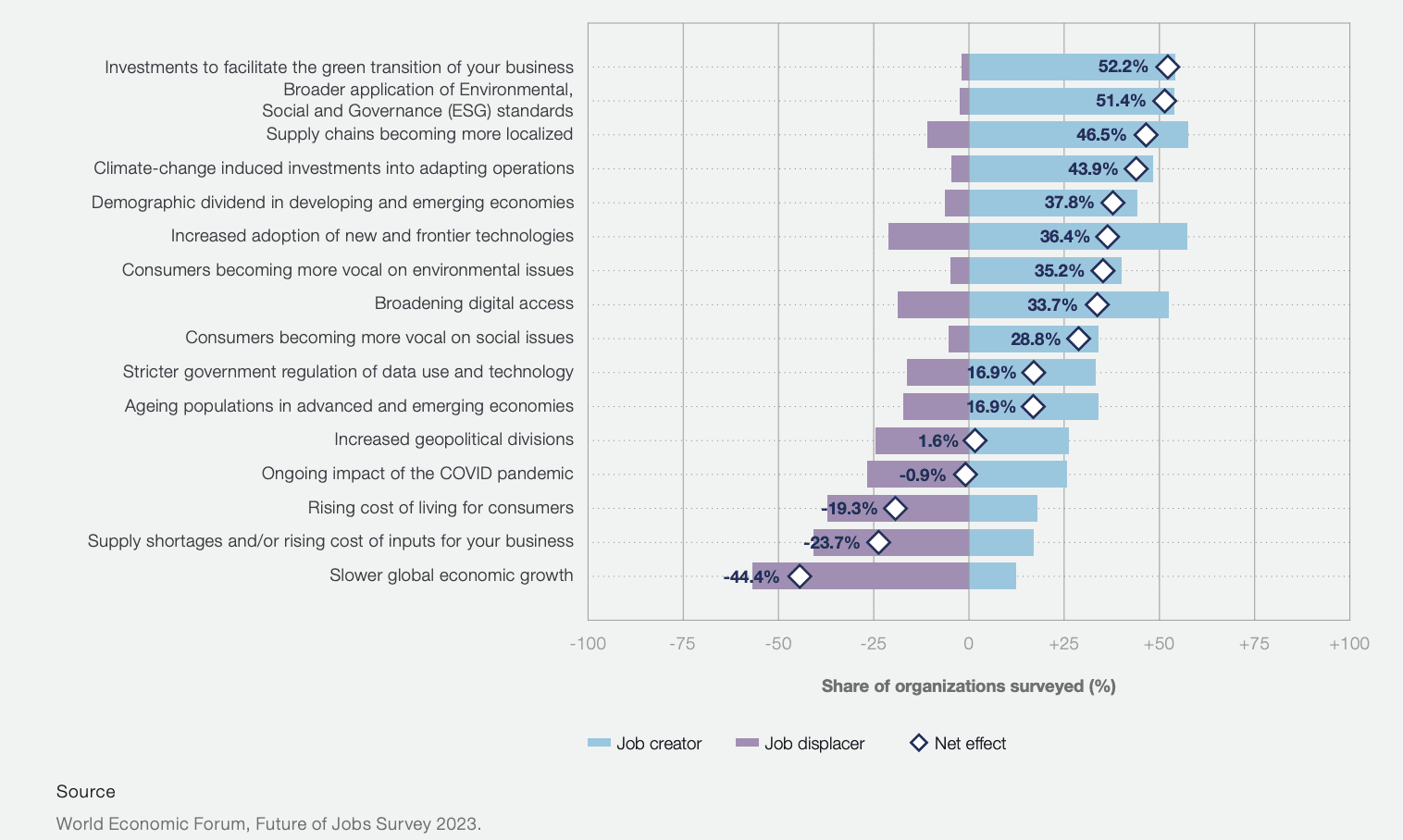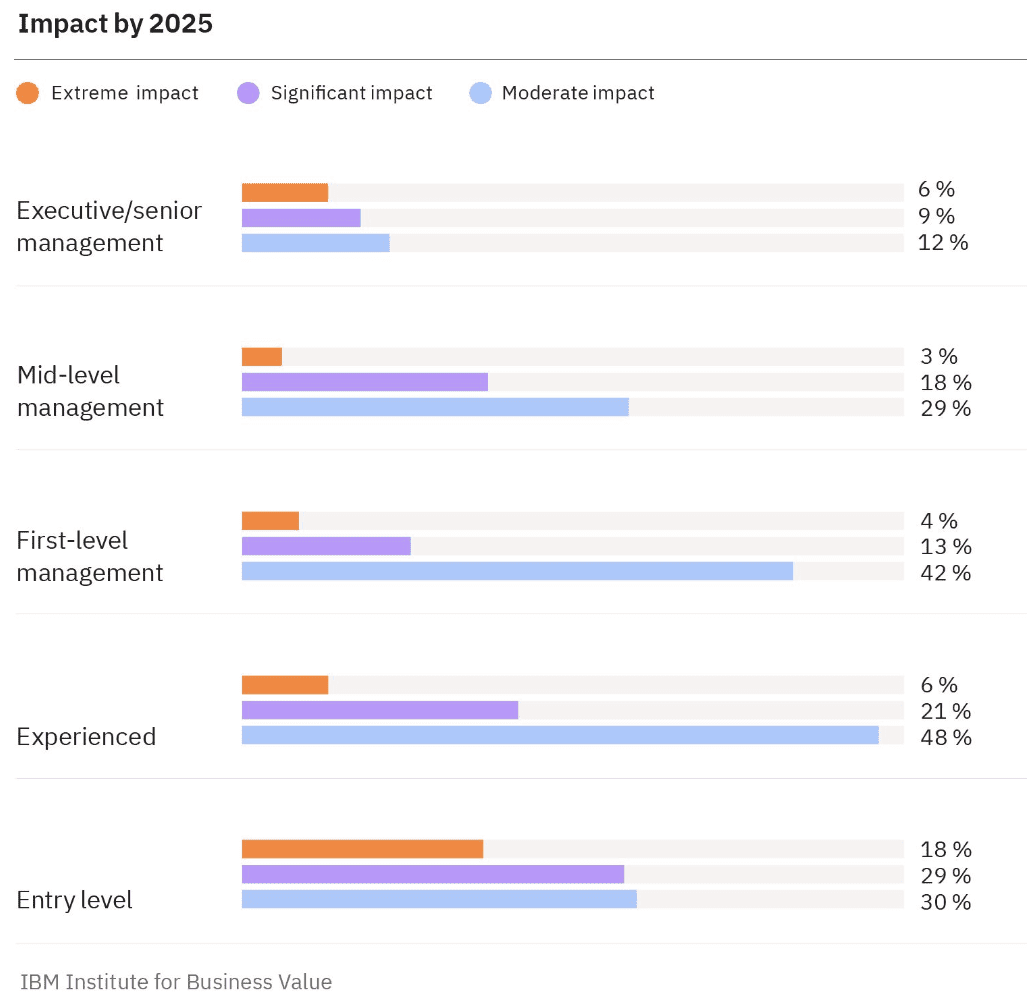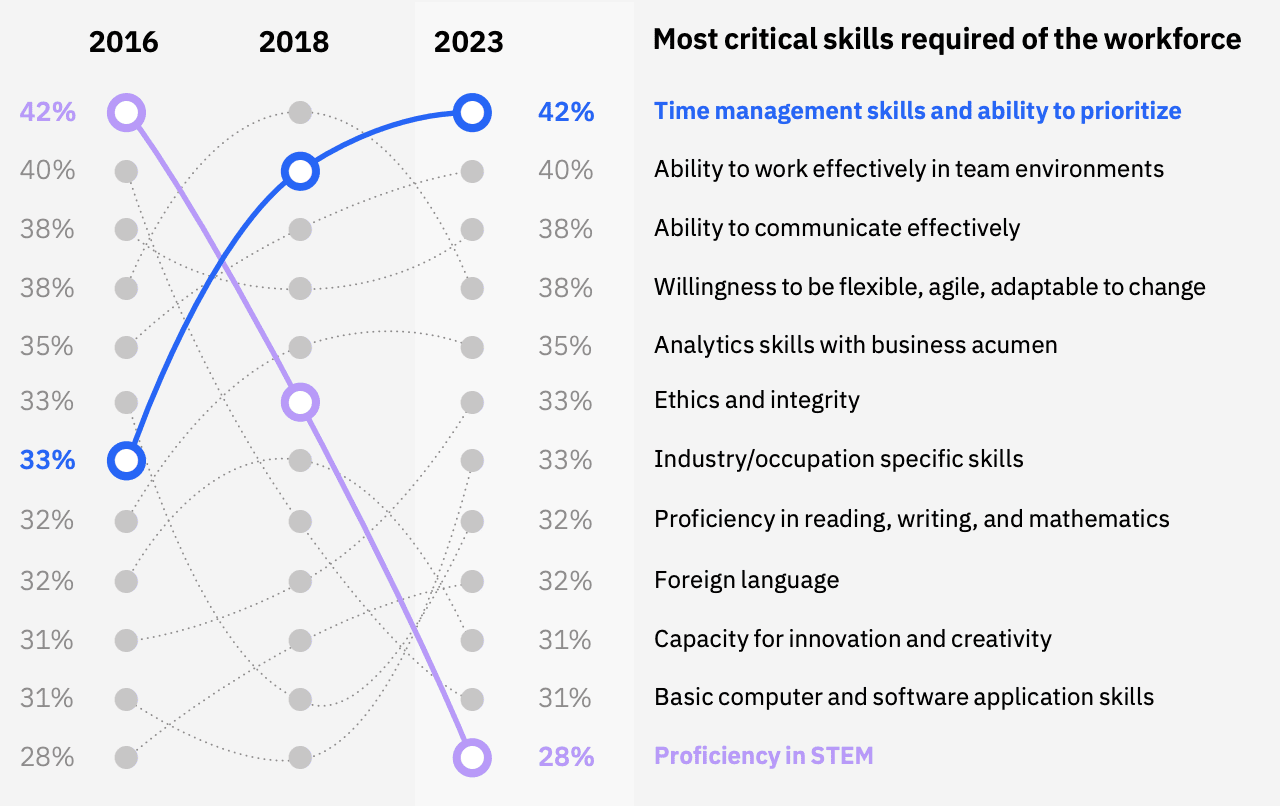
Image by Editor
Over the past decade or two, we have seen a rise in e-learning platforms to meet the demand in the technology sector. Many people delved into it as it seemed at the time to be the next big thing to get into. The salaries were generous and there was always room for growth. At that point, it seemed like a win-win.
However, with the rise of Generative AI having a significant impact in today’s various industries, a big concern for many of these mature organizations is being able to fill up the skill gap. If organizations want to remain competitive, they need to have a skilled team behind them.
AI can automate various tasks, naturally pushing certain job roles out of the door. So where does that leave us?
So is it still a win-win situation anymore, or is it do or die? A bit dramatic, I know.
According to The World Economic Forum (WEF), the new technologies that are amongst us and their continuous growth will disrupt 85 million jobs globally between 2020 and 2025—and create 97 million new job roles. Yikes, only 2 more years to go. This was posted in 2020, with them also stating that analytical thinking, creativity and flexibility are among the top skills that will be needed for the year 2025.
As you can see from the image from The World Economic Forum (WEF) report below, this is the expected impact of macrotrends on jobs between the years 2023 to 2027. On the left-hand side, you can see how expected trends will create or displace jobs.

Image by WEF
To have a look at the full report, please refer to here.
Another study from the IBM Institute for Business Value stated that
“4 in 5 executives say generative AI will change employee roles and skills. While workers at all levels will feel the effects of generative AI, lower-level employees are expected to see the biggest shift.”
It seems that Gen Z who had more access to technology growing up and who would have probably felt the effects of recessions, will also have the greatest impact when it comes to Generative AI and finding jobs.
Looking at the image below from the IBM report, as we expected, executives and senior management will have the least impact. But as you have less experience, the impact becomes greater. Entry-level employees will have less impact than experienced and first-level management, which may contradict the above statement.
Is this due to the ability to upskill entry-level more swiftly than experienced and first-level management employees?

Image by IBM report
The New Skills Paradigm
A part of the IBM report which was interesting to me was the new skills paradigm. When we’re thinking about keeping up with technology, the majority of people are thinking about learning hard skills such as coding or getting into tech product management. This IBM report shows that executives estimate that 40% of their workforce will need to reskill due to AI and automation.
The new skills paradigm focuses on soft skills and how they have changed from the year 2016 to 2023. As we can see in the images below, skills such as proficiency in STEM and basic computer and software applications which we all deemed highly desirable over the years have shown to plummet in importance. Skills such as time management, working effectively in a team and communication are at the lead.

Image by IBM report
The IBM report also stated that on average, 87% of executives expect job roles to be augmented, rather than replaced, by generative AI. 87% is a lot.
What this means is that close to three-quarters in marketing (73%) and customer service (77%) and more than 90% in procurement (97%), risk and compliance (93%), and finance (93%) roles and tasks will be augmented.
Does this mean that the workforce will work hand-in-hand with technology swiftly, or will it still require us to upskill?
The answer to that living in this day and age will always be to up-skill.
So what should you take from this?
A lot is changing, and it’s changing fast. To keep up with the movements, you will need to embrace reskilling or upskilling aswell as harness AI tools to enhance your capabilities, rather than be replaced.
You should take solace in knowing that executives have stated that upskilling whilst the generative AI does not mean learning how to code, but more so time management and collaboration.
Nisha Arya is a Data Scientist and Freelance Technical Writer. She is particularly interested in providing Data Science career advice or tutorials and theory based knowledge around Data Science. She also wishes to explore the different ways Artificial Intelligence is/can benefit the longevity of human life. A keen learner, seeking to broaden her tech knowledge and writing skills, whilst helping guide others.

